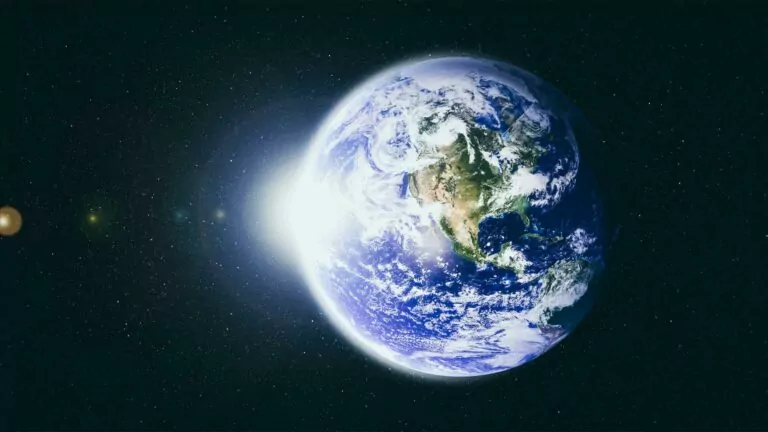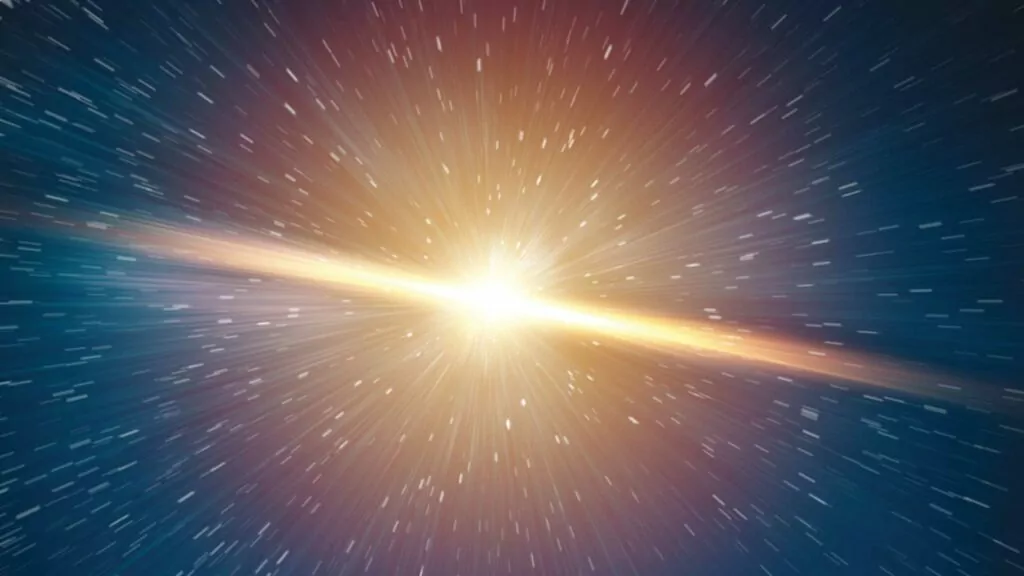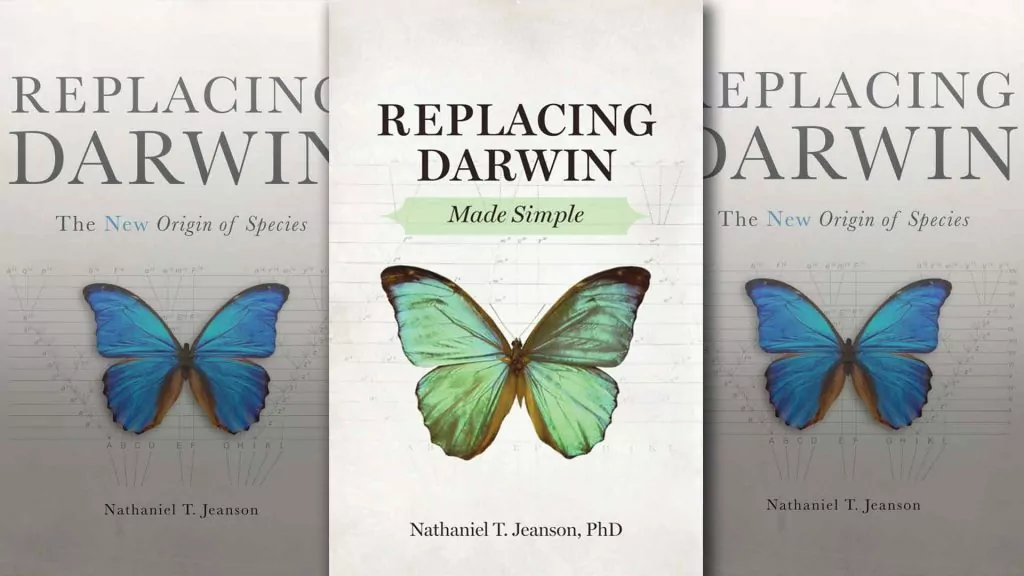Billions of years, or just six days, do we need to care?
*****
Does it matter?
Of all the questions in the creation vs. theistic evolution debate, whether the debate even matters may be the biggest, and more important than how long it took, what method God used, or how to understand the opening chapters of Genesis.
Christians understand we shouldn’t bicker with our brothers and sisters over minor matters – Jesus told us: “Blessed are the peacemakers, for they will be called sons of God” (Matt. 5:9). God doesn’t want us to make big out of little. He doesn’t want us to be quarrelsome, nitpicking all sorts of fights.
However, God also warns against making little of big. There is a time and place for fighting, and we mustn’t be like the watchman on the wall who saw the danger coming and stayed quiet (Ezek. 33:6-8). It is a con to say “peace, peace” when war is at the door (Ezek. 13:10-16, Jer. 6:14).
Now, in the creation vs. theistic evolution debate, there are a lot of Christians who aren’t prepared to pick a side. They aren’t loyal to 6 days or billions of years, perhaps believing they need a theology or science degree to be qualified to take a stand. They don’t want to be forced to pick one team over the other. However, when the question is “Does this matter?” then not picking a side is still picking a side. Refusing to choose is only legitimate if this is no big thing.
So is it really no big thing… or is it huge?
To answer that question, let’s look at both sides.
Side 1: Who matters more than how
Among the “can’t we all get along” folks, the focus is on just how much agreement there is between 6-day creationists and theistic evolutionists. Both acknowledge the God of the Bible as our Creator. We all agree He made us, and that His creative genius is evident in the whole of the astonishing universe around us. Whether we’re looking at the Sun that warms us from 150 million kilometers away, or the chubby toes of our newest grandbaby, we’re all in awe of what He hath wrought. And isn’t that basis enough for fellowship? The argument here is that Who did it matters much more than how He did it, or how long He took. Who matters more than how.
As long as Christians all give God the credit, then isn’t everything else incidental?
Side 2: How tells us all about Who
On the other side there is a ready concession that Who does indeed matter more than how. After all, God matters more than His creation.
But how He started it all isn’t incidental. It matters too, because how God chose to create reveals God’s character. How He created tells us about Who God is. So yes, both sides agree it is the God of the Bible who created, but that isn’t as significant as it might first seem.
Consider the Muslims, who also declare that the God of the Bible created. And they say their Allah has no Son. That means their biblical creator god, isn’t actually God. Orthodox Jews worship the God who created, but deny Jesus is God. Mormons worship a biblical god who created and even has a son…but he also has a wife. And his son is said to be the brother of Satan. Their creator god is not our Creator God either.
It is possible, then, to worship such a distorted image of the biblical Creator that you aren’t actually worshiping God at all. This issue is that big. The argument here is that how God created is an issue worth investigating because, in His chosen means, God is teaching us about Himself – God reveals Himself not only in His Word but also in His creation (Ps. 19:1-4). As Paul puts it in Romans 1:20:
“…His invisible attributes, namely, his eternal power and divine nature, have been clearly perceived, ever since the creation of the world, in the things that have been made.”
The how matters because it tells us all about Who.
What do the two creation accounts tell us about God?
What then, do the two different creation accounts teach us about God?
- Creationists worship a God whose power was such that He spoke into existence something from nothing, and made a universe appear in just 6 days. Thus the famed chicken and egg dilemma is no dilemma at all for creationists, who know the chicken sprung into being fully formed on Day 5. And while pagans worship the Sun, God showed His great power by creating light (Day 1) before even creating a light source (the Sun on Day 4). Both marriage and the two sexes, male and female, were created in this 6-day period. God affirmed again and again that what He made was “good” and, upon completion on Day 6, even “very good.” What is good? The perfect sinless world was good. And it was good, not only as it was on Day 6, but even as it was being made through Days 1-5 – God found the process good too. Creationists know that death appeared as a result of Man’s disobedience – we broke the world. But there is hope; this enemy, death, has been conquered by Christ’s perfect obedience. And it is through Jesus that the world will be made good once again.
- The god of theistic evolution took billions of years to form the universe. During that process neither the chicken nor the egg was first: they were preceded by millions of years of incremental evolution that necessarily involved a red-in-tooth-and-claw, survival-of-the-fittest, where the weak were killed off and the strong went on to breed. Death didn’t simply precede Man’s fall into sin, it preceded Man by millions of years. And rather than being the enemy, death was a key tool in God’s creative work. Marriage and gender weren’t always so, but evolved at some point, and who knows but that they may be evolving still. And it is this eons-long process of constant change – with its refining diseases, innumerable mutations, repeated disasters, and, yes, death, death, and more death – that God was calling good and very good in the opening chapters of Genesis.
The implications extend to the present, where creationists can turn to Scripture for guidance on issues like homosexuality, marriage, and gender confusion. We can learn what is best for men and women by seeing how God made us at the beginning.
But if we evolved, and that process was good, why couldn’t we be evolving still? Our forebearers, when once they were single-celled, weren’t divvied into two genders – that only came later. So if we could go from none to two genders, why can’t we evolve new additions like ze and zir? And why would we presume that marriage has to be between just the first two genders? What answer does theistic evolution have to the craziness of our age?
Does theistic evolution present a false god?
Thus the god of theistic evolution bears little resemblance to God of the Bible. But does that mean theistic evolutionists are without hope? Are they worshipping a false god?
Thankfully, it is not our brilliance that saves us, but God’s grace. And that’s why, even as some theistic evolutionists worship a god of their own invention, we can hope and pray and expect that many others still worship the true God, though in their inconsistency. They might say they believe in billions of years of death, but their faith is still in the God who declared death an enemy and conquered it. They may doubt the accuracy of some of Jesus’s words – how he spoke of a literal Adam and Eve created in the beginning (Mark 10:6, Matt. 19:4) – and yet cling to His promise that there are many rooms in His Father’s house (John 14:2). They may mangle the first few chapters of Genesis, but then take God at His Word for the whole of the rest of the Bible.
That doesn’t make this any less of a big deal. Over a lifetime people do work out their inconsistencies. Many theistic evolutionists will either come to acknowledge God’s Word as authoritative from beginning to end, or they’ll subject the rest of God’s Word to further review and revision by outside authorities. It’s no slippery slope fallacy to say that if you scratch a professing Christian who’s pro-choice or LGBT-affirming, underneath you’ll find an evolutionist.
Conclusion
Like Allah, without a son, the god of theistic evolution offers no hope. In seeing billions of years of death as good and very good, what need would such a god even have to send his son to die for us? Thankfully, the one true God did send His Son, so we can have not only hope but an assurance that our sins are paid for, death is defeated, sickness will end, and all of creation will be redeemed.
The creation debate isn’t one any Christian can avoid – it is of the first importance, because it is about Who God is.













